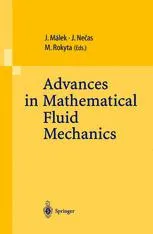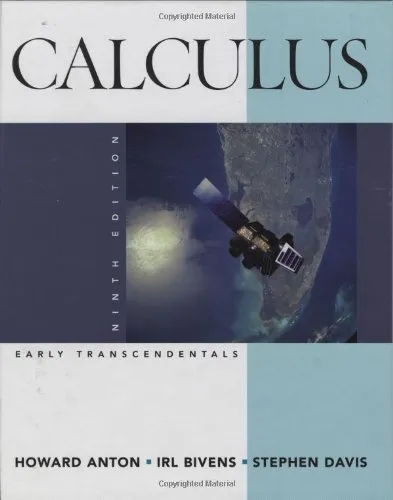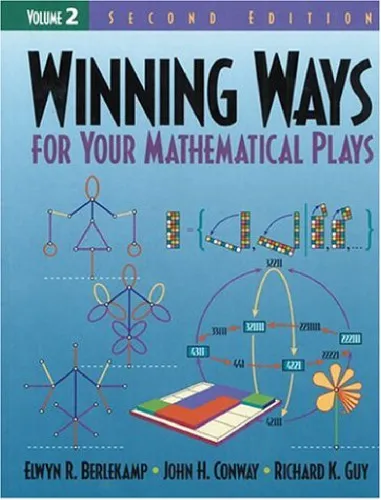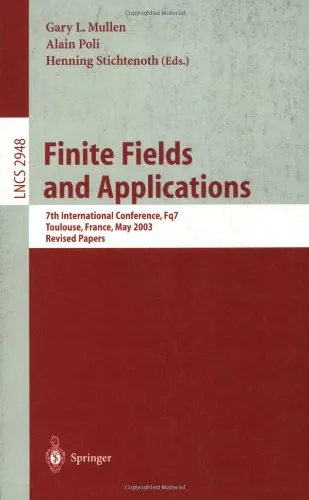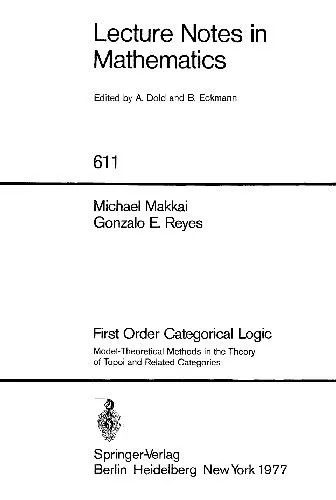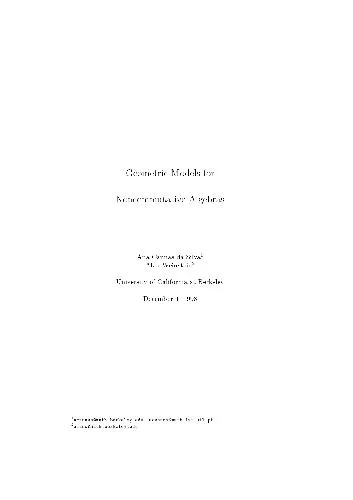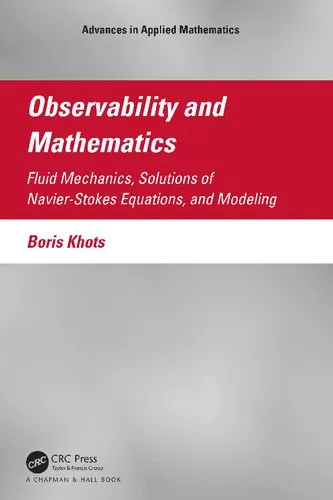Advances in Mathematical Fluid Mechanics: Lecture Notes of the Sixth International School Mathematical Theory in Fluid Mechanics, Paseky, Czech Republic, Sept. 19–26, 1999
4.0
Reviews from our users

You Can Ask your questions from this book's AI after Login
Each download or ask from book AI costs 2 points. To earn more free points, please visit the Points Guide Page and complete some valuable actions.Related Refrences:
Introduction to "Advances in Mathematical Fluid Mechanics"
The book, "Advances in Mathematical Fluid Mechanics: Lecture Notes of the Sixth International School Mathematical Theory in Fluid Mechanics, Paseky, Czech Republic, Sept. 19–26, 1999," is a definitive resource for anyone interested in the intersection of mathematics and fluid dynamics. Originating from the esteemed Sixth International School on Mathematical Theory in Fluid Mechanics, this volume encapsulates the lectures and advancements shared during the week-long conference held in Paseky, Czech Republic. With an assembly of eminent experts from the field of mathematical and computational fluid mechanics, this book is an extraordinary compendium of modern theories, methods, and applications.
Mathematical fluid mechanics is an essential domain that addresses some of the most significant problems in physics and engineering today. This book not only brings forth cutting-edge progress in the discipline but also provides a strong foundation for understanding the interplay between mathematics and fluid behavior. Both theoretical insights and practical applications are explored through rigorous mathematical frameworks.
Designed for advanced students, researchers, and professionals, these lecture notes serve as a pivotal medium for understanding various complex phenomena and learning the techniques used for analyzing fluid flows. The book presents a dynamic, cohesive narrative of contemporary mathematical approaches to problems such as turbulence, stability, and the dynamics of Navier-Stokes equations.
Detailed Summary of the Book
The book delves into the core mathematical theories underpinning fluid mechanics. It introduces readers to the Navier-Stokes equations, fundamental principles governing fluid motion. Although mostly known for their complexity and nonlinearity, these equations provide a framework for understanding turbulence, laminar flows, and transition phenomena. Key topics included in the book involve:
- The mathematical foundation of fluid mechanics.
- Existence and uniqueness problems in partial differential equations (PDEs).
- Advancements in the numerical and analytical treatment of Navier-Stokes equations.
- The role of functional analysis, Sobolev spaces, and weak solutions in modern fluid mechanics.
- Insights into turbulence and related physical phenomena.
Each chapter represents a lecture session, seamlessly coupling clarity with mathematical rigor. Contributions from leading researchers embody insights that make the book an intellectual asset for learners and experts alike.
Key Takeaways
- Comprehensive understanding of the Navier-Stokes equations and their implications in fluid mechanics.
- Knowledge of modern techniques used to address classical and emerging challenges in mathematical fluid mechanics.
- In-depth exploration of turbulence, stability, and uniqueness issues in fluid flows.
- Development of advanced mathematical tools like functional analysis and weak solution theory in fluid dynamics.
- An appreciation for interdisciplinary collaboration between applied mathematics, physics, and engineering in solving critical problems.
Famous Quotes from the Book
- "The complexity of turbulence lies not in its description, but in the inability of a finite set of equations to fully capture its stochastic behavior."
- "Fluid mechanics, while rooted in physical principles, derives much of its progress from the mathematical tools designed to understand and predict behavior in dynamic systems."
- "The Navier-Stokes equations are not just mathematical curiosities; they are a mirror into nature's processes at its most intricate scales."
Why This Book Matters
This book holds immense significance for multiple reasons. It amplifies the importance of mathematics in solving practical and theoretical problems in fluid mechanics and provides a solid foundation for tackling pervasive challenges in the field. With its balance of rigor and accessibility, the book is instrumental for advancing individual research and enhancing teaching methodologies.
Beyond its immediate academic and research applications, "Advances in Mathematical Fluid Mechanics" also makes a broader contribution. It demonstrates how mathematical abstractions, when applied judiciously, can illuminate the understanding of complex physical systems, bridging gaps between theory and application. The collection is a testament to global cooperation and collective intellectual effort in addressing some of the most perplexing issues in science and engineering.
Whether you are a student immersing yourself in the field, a researcher looking for advanced insights, or an educator seeking comprehensive resources, this book is an invaluable guide. It encapsulates decades of scholarly effort and remains a cornerstone in the vast library of mathematical fluid mechanics literature.
Free Direct Download
You Can Download this book after Login
Accessing books through legal platforms and public libraries not only supports the rights of authors and publishers but also contributes to the sustainability of reading culture. Before downloading, please take a moment to consider these options.
Find this book on other platforms:
WorldCat helps you find books in libraries worldwide.
See ratings, reviews, and discussions on Goodreads.
Find and buy rare or used books on AbeBooks.
1261
بازدید4.0
امتیاز0
نظر98%
رضایتReviews:
4.0
Based on 0 users review
Questions & Answers
Ask questions about this book or help others by answering
No questions yet. Be the first to ask!
